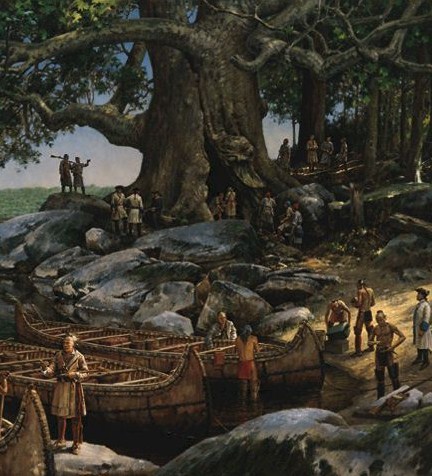Samuel Mcdowell-Draper Manuscripts
….”Spies did a good job to keep off the Indians. They afterwards kept up towards the Big Sandy and Kanawha and over towards Greenbrier, on the branches of the Monongahela. The spies extended from Tygerts creek to Louisville. Took a blanket and lay out at nights, sometimes in a hollow tree. There used to be a good many large sycamores. Get inside one of them, and sometimes tolerably warm. In rainy weather elsewhere our blanket was stretched up on sticks and we lay under it. Sometimes under a bank, in a place where it would not be seen far, we would build up a fire.
History of the Dividing Line Wm Byrd 1728 page 143


2 comments:
Modern people have little conceptual grasp of the size of trees in the presettlement era. I was impressed by this passage -
“Sycamores were often hollow, and large enough to shelter twenty or thirty men during a sudden storm.”
Found that in a fascinating book "Paradise Found: Nature in America at the Time of Discovery" by Steve Nicholls, University of Chicago Press, 2009. His book is devoted to the state of the natural world in North America before the arrival of Europeans. I think you would enjoy reading it.
Stan
Very true Stan, and thanks for your comment and information.
I think the new image above shows it quite well.
Thanks again.
Regards, Le Loup.
PS. I will check out the book.
Post a Comment